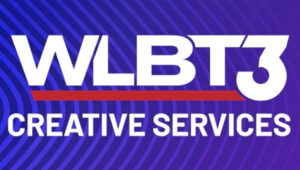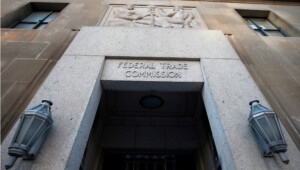What Happens If The Spectrum Auction Fails?
 Wells Fargo’s Marci Ryvicker: “Of the three broadcasters most ‘exposed’ to the auction, we view Sinclair Broadcast Group as the healthiest regardless and would view Tribune Co. as having the most potential downside risk to its stock price.”
Wells Fargo’s Marci Ryvicker: “Of the three broadcasters most ‘exposed’ to the auction, we view Sinclair Broadcast Group as the healthiest regardless and would view Tribune Co. as having the most potential downside risk to its stock price.”
Yesterday was a busy one for the TV incentive auction, with Stage 3 of the Forward Auction beginning and ending after just one round of bidding. At the same time, there are two other bits of auction related news — both dealing with LPTV and Class A stations. In the first, the US Court of Appeals rejected the appeal of Walker Broadcasting Co., a company that had an authorization for a Class A TV station, but had not finished construction and licensing of that station in time for inclusion in the auction. Also, the GAO completed a study on the impact of the auction on LPTV stations.
The process will begin again with round 4 of the reverse auction most likely on Dec. 13. NAB President Gordon Smith’s reaction: “The results of the latest round of the TV auction leave us scratching our heads, given the decade-long refrain of a spectrum crunch. We look forward to the next round.”
Stage 3 Of Forward Auction Begins Today
The FCC last week announced that Stage 3 of the reverse auction portion of the FCC Incentive Auction is now complete, and the amount necessary to be paid to TV stations to vacate the required spectrum in this stage is $40,313,164,425. The forward auction needs to raise about $42.3 billion to avoid Stage 4 of the auction. If we have to go to Stage 4, the FCC would further reduce the amount of the TV band that it would try to reclaim to repurpose for wireless uses.
Stage 3 of the FCC’s broadcast incentive spectrum reverse auction closed Thursday with broadcasters seeking $40.3 billion for 108 MHz of spectrum. The FCC had said earlier that the day after Stage 3 of the reverse auction ends, it would announce the start date and initial bidding schedule by wireless companies for Stage 3 of the forward auction, Monday, Dec. 5. If the $40.3 billion total is not met, the process resets with a lower MHz target.
The FCC said Monday that the next stage of its forward incentive auction will begin on Monday, Dec. 5. “Forward auction bidders should be prepared for bidding to begin that day,” it announced. Bidding in the Stage 3 reverse auction is set to wrap up on Thursday, Dec. 1, and the commission said that the next day it will announce the official start date and initial bidding schedule for the Stage 3 of the forward auction.
Free Press and the Free Press Action Fund today launched a campaign to set aside proceeds from the auction of public TV station licenses to strengthen local journalism and community-information projects.
TV Auction Could Transform Local Media
The proceeds from the FCC’s incentive auction could produce enormous public benefits if they are used to build a 21st-century infrastructure for public interest media, writes Christopher J. Daggett of the Geraldine R. Dodge Foundation. A broad and exciting array of public interest initiatives, including digital news sites, blogs, podcasts, YouTube channels, public data sites, apps and civic engagement, could be built with some of the money generated by the auction.
TV tower firm Electronics Research warned the FCC that the “quiet period” for broadcasters during the ongoing broadcast incentive auctions could have a “detrimental effect” on planning for the resulting channel reassignment transition.
It urges flexibility above all, saying: “Threatening broadcasters and their viewers with service losses solely due to the commission’s miscalculation is an irresponsible and unfair approach to the repacking challenge.”
RF Engineers Eye The Future Of TV Spectrum
 Stations need to make sure they consider their future ATSC 3.0 needs alongside any changes that the post-incentive auction spectrum repack will require.
Stations need to make sure they consider their future ATSC 3.0 needs alongside any changes that the post-incentive auction spectrum repack will require.
California Oregon Broadcasting, CNZ Communications, Gray Television, Local Media Holdings, Media General, Nexstar Broadcasting Group and Venture Technologies Group identify a number of problems with the FCC’s post-auction channel reassignment process and offer proposed solutions, including dropping the FCC’s confidentiality rules so stations can work together.
The trade group tells the FCC that the “sheer number of stations that must move, the interference interdependencies between these stations, and the highly individualized nature of broadcast transmission facilities will make this the most challenging transition the commission has ever overseen,” and offers suggestions for facilitating the process.
A key driver of OTA growth comes from cord-cutters or cord-nevers who relied on internet subscription services, then discovered that their HDTVs already receive free, local television through a cheap antenna. Ironically, it turns out that broadband — still thought by some to be the killer of television — has become a kind of gateway drug for cord-cutting. The key for public television stations is to integrate broadcasting with the internet, which the ATSC 3.0, the next-generation TV standard, is explicitly designed to enable when broadcasters begin adopting it in 2018.
To insure that stations are not forced off the air during the post-auction TV band repack and wireless carriers get prompt access to the spectrum they buy, the FCC should permit stations to share channels during the repack, says OTA Broadcasting.
The FCC on Tuesday announced a new 108 MHz clearing target and early November start date for the latest round of its incentive spectrum auction. The Stage Three reverse auction will begin next Tuesday, Nov. 1. Bidding will run in one session from 10 a.m. to 2 p.m. the first day, in two rounds from 10 a.m. to noon and 3 p.m. to 5 p.m. each day from Nov. 2 through Nov. 4, and three one-hour rounds starting at 10 a.m., 1 p.m. and 4 p.m. from Nov. 7 onward. Bidding will not be held on Nov. 11 in observance of the Veterans Day federal holiday.
Since the target amount was not met, the FCC will announce next week a lower target and a start date for Stage 3.
In a somewhat unusual move, the FCC’s Media Bureau and Incentive Auction Task Force have issued a joint public notice encouraging “all television licensees” to “ensure that their contact information on file with the commission is accurate and current”. As the notice reminds everybody, licensees are generally required to do so anyway, but it’s especially important now in light of the impending spectrum repack process.
Bidding begins on Oct. 19. The commission has set new first-round asking prices.
The next step is the second try at the forward auction, with bidding by broadband providers set to start next on Oct. 19.
“ATSC 3.0 is rounding third base and heading into the home stretch,” says Anne Schelle, managing director of Pearl TV, a consortium of leading station groups that backs 3.0 and commissioned the guide that spells out how stations can efficiently make the move to the next-gen transmission standard.
It moves the event from the original date of Oct. 13 to Oct. 17 to avoid a conflict with an IEEE symposium.
The FCC is providing broadcasters with an opportunity to test and provide feedback on the Incentive Auction Broadcaster Relocation Reimbursement System, which is the online form that the commission will use to collect requests for reimbursement of repacking expenses (technically known as FCC Form 2100, Schedule 399).
Stations will receive confidential letters with their final channel assignments shortly after the auction’s final stage, giving all stations more time to prepare. Each station that has to move will be slotted into one of 10 transition “phases” with staggered completion dates to ease coordination issues and enable the commission to track progress.
The FCC chairman tells a Senate oversight hearing that the commission “will soon release for discussion and comment transition models to calculate the order and schedule of station relocation efforts” and they will reflect input from broadcasters, wireless companies, tower crews, equipment manufacturers and others.
For Stage 2, the Auction System set the clearing target at 114 MHz, the next-highest target that meets the commission’s standards for setting a clearing target in a stage. Compared to Stage 1’s 126 MHz clearing target, the 114 MHz clearing target generally clears nine blocks of spectrum in each partial economic area instead of 10 blocks and adds two additional channels to the TV band.
Auction Stage 1, Not Exactly FUBAR, But…

A major Washington wireless trade group on Wednesday said that participation in the first part of the FCC’s incentive auction had been robust, even though it did not hit a key target. The NAB used the results from the first round to cast doubt on wireless industry claims of the sale’s necessity, but wireless trade group CTIA Vice President for Regulatory Affairs Scott Bergmann painted the more than $20 billion that was bid as a victory.
Perhaps indicating that the rapid conclusion of Stage 1 of the incentive auction was not a surprise to the FCC, the commission moved with lightning speed (one day) to announce that Stage 2 of the auction will begin on Sept. 13 with a spectrum clearing target of 114 MHz.
You can almost hear Agent Maxwell Smart’s trademark “Missed it by that much!” The FCC quietly announced just after close of business Tuesday that “[b]idding in the forward auction has concluded for Stage 1 without meeting the final stage rule and without meeting the conditions to trigger an extended round. The incentive auction will continue with Stage 2 at a lower clearing target.”
A federal court on Tuesday ruled against a challenge to part of the FCC’s ongoing process of reassigning TV spectrum to mobile providers and the resulting repack of the TV band. The Appeals Court in Washington denied a challenge from Mako Communications, an LPTV operator, to the FCC’s decision not to extend protections to its operations following the repack. The court said that the FCC’s decision not to offer the protections did not change the rights of LPTV broadcasters, since full-power stations already have priority when it comes to using wireless spectrum.
Advisers Can Aid In Post-Auction Planning

At most, broadcasters have 39 months to complete their move to a new channel assignment if and when the incentive auction is complete. That’s not much time. To expedite antenna replacement, many are advocating a two-step tango on TV towers where crews install an auxiliary, broadband side-mount antenna first to keep a station on air. Then later, when the smoke clears, design, build and install a permanent antenna that replicates as closely as possible today’s coverage contour.
AT&T Repack Plan Getting Positive Reviews
 A new plan from AT&T on how best to repack television stations on a regional basis following completion of the incentive auction has received kudos from parts of the TV industry knowledgeable about what will be required. However, there appears to be a few missing pieces, the most glaring of which is the lack of leadership to shepherd the TV broadcasters, tower crews, vendors and others through the process. Read the first part of this Special Report here.
A new plan from AT&T on how best to repack television stations on a regional basis following completion of the incentive auction has received kudos from parts of the TV industry knowledgeable about what will be required. However, there appears to be a few missing pieces, the most glaring of which is the lack of leadership to shepherd the TV broadcasters, tower crews, vendors and others through the process. Read the first part of this Special Report here.
Stations, Tech Cope With Likely Repack Delay
 Since it looks like the FCC will have to repeat its two-part incentive auction process to balance the money promised to broadcasters with what is raised from wireless carriers,broadcasters and their technology suppliers remain in the dark longer about which stations will have to move in the repack and to which channels. But that’s not necessarily a bad thing. It could help sync up the repack with an ATSC 3.0 rollout and provide more time to create the 36-month repack schedule. Some vendors say they could use the extra time to prepare for the expected demand. Read the second part of this Special Report here.
Since it looks like the FCC will have to repeat its two-part incentive auction process to balance the money promised to broadcasters with what is raised from wireless carriers,broadcasters and their technology suppliers remain in the dark longer about which stations will have to move in the repack and to which channels. But that’s not necessarily a bad thing. It could help sync up the repack with an ATSC 3.0 rollout and provide more time to create the 36-month repack schedule. Some vendors say they could use the extra time to prepare for the expected demand. Read the second part of this Special Report here.
The securities research unit says the FCC incentive auction of broadcast spectrum is likely heading into more stages after the opening day forward auction in Stage 1 yielded just $8.5 billion in bids. The FCC needs $88.5 billion to cover the offers it made to broadcasters for the spectrum on the block and to cover associated administrative costs. “We still stick with our original analysis, which says that the forward auction will ultimately net anywhere between $27 billion and 38 billion,” it says.
The commission purchased spectrum from broadcasters and, starting Tuesday, will attempt to resell it to wireless providers and other interested parties. The commission held a mock auction last week to prepare bidders for the real sale.
FCC spectrum auction honchos Gary Epstein and Jean Kiddoo give a preview of how the commission’s spectrum incentive auction process will unfold and how the public can keep track as the auction moves through the bidding rounds.
Debunking Myths About The Incentive Auction
 Jonathan Cohen, a partner at Wilkinson Barker Knauer, has been closely following the incentive auction by which the FCC is looking to clear a significant part of the television band and take that spectrum, slice it up into different size blocks, and resell it to wireless companies. He has been guiding numerous companies through its complexities. Here, he offers various observations about the auction.
Jonathan Cohen, a partner at Wilkinson Barker Knauer, has been closely following the incentive auction by which the FCC is looking to clear a significant part of the television band and take that spectrum, slice it up into different size blocks, and resell it to wireless companies. He has been guiding numerous companies through its complexities. Here, he offers various observations about the auction.
PBS Chief Concerned About Incentive Auction
This year’s auction to shift public airwaves from carrying TV signals to delivering wireless services for mobile devices has PBS President Paula Kerger concerned a “great deal.” Kerger, speaking Thursday during the PBS portion of the Television Critics Association media tour, said that FCC rules prevent her from discussing individual stations. But she stressed the potential impact of stations going dark.









































